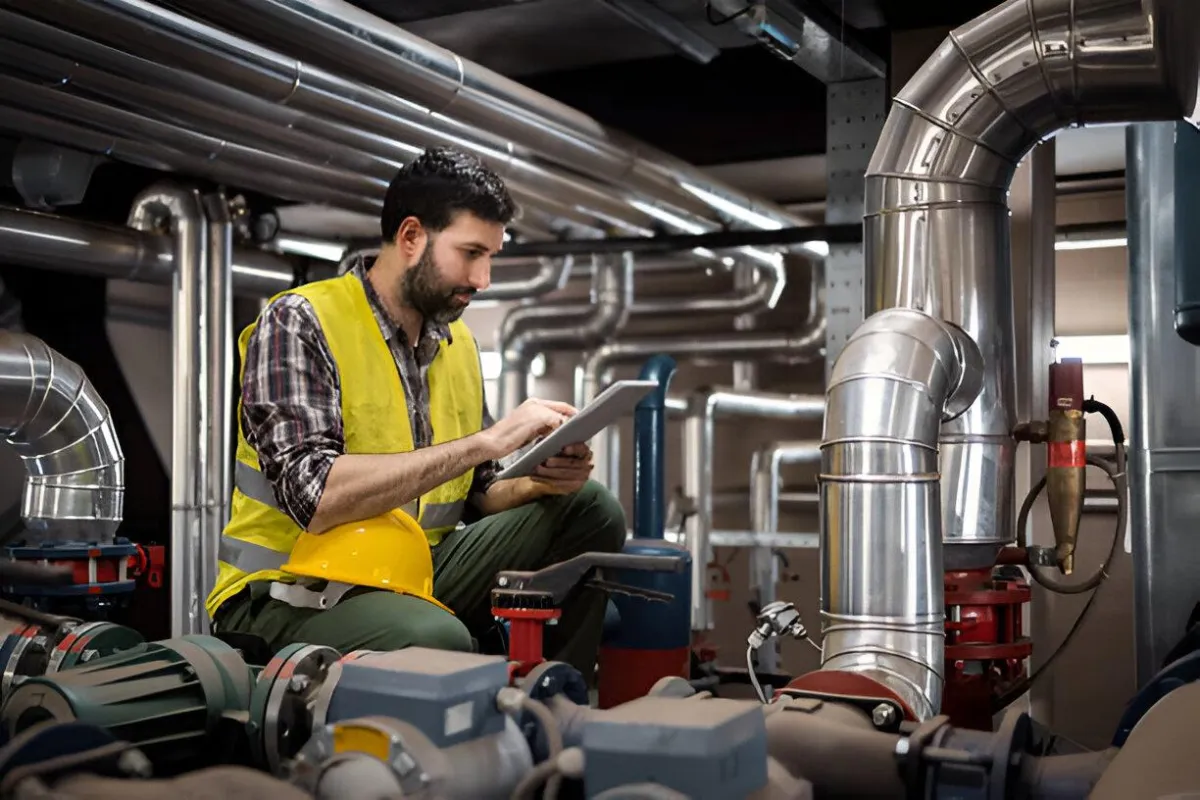
Top 10 Common Plumbing Problems (And How to Prevent Them)
Plumbing problems can disrupt your entire day—and if not addressed quickly, they can escalate into costly repairs. In cities like Bellevue, where a mix of historic and newly built homes share the same neighborhoods, it’s not uncommon to encounter a wide range of Household Plumbing Problems. From aging copper pipes in older homes to construction-related issues in newer builds, knowing what to watch for is key to keeping your plumbing system healthy.
Bellevue’s wet and chilly winters also make plumbing maintenance even more critical. Leaks and pipe bursts tend to happen when you least expect them—often when you're away or during a cold snap. Whether you're a new homeowner or a seasoned one, understanding the most Common Plumbing Issues and implementing simple Plumbing Maintenance Tips can save you time, money, and stress.
At Eastside Repipe & Plumbing, we’ve helped thousands of homeowners stay ahead of plumbing failures
Below are the 10 most frequent issues we encounter—and how to stop them before they start.
1. Dripping Faucets
A single faucet that drips once per second can waste over 3,000 gallons of water per year.
Why It Happens:
Worn washers or cartridges
Improper faucet installation
Water pressure problems
Prevention Tips:
Replace parts proactively every few years
Install pressure regulators if needed
Turn off faucets gently and completely
2. Clogged Drains and Toilets
Clogs occur when debris prevents water from flowing freely. Kitchen sinks clog from grease, while bathroom drains suffer from hair and soap buildup.
Typical Causes:
Hair, food, and toilet paper overload
Flushing non-flushable items
Grease buildup in pipes
Prevention Tips:
Install mesh drain screens
Avoid flushing wipes or feminine products
Pour boiling water down the drain weekly
Schedule Professional Drain Maintenance
3. Running Toilets
Toilets that won’t stop running waste water silently—and often go unnoticed until the next utility bill arrives.
Common Causes:
Worn flapper
Leaky fill valve
Float misalignment
Prevention Tips:
Test toilets regularly with dye tabs
Replace internal components every 5–7 years
Have a plumber check water pressure
4. Low Water Pressure
If your shower trickles instead of sprays, it’s likely due to low water pressure.
Root Issues:
Sediment in pipes or faucet aerators
Hidden pipe leaks
Municipal supply issues
What You Can Do:
Soak showerheads in vinegar to remove buildup
Have your pipes inspected for corrosion or damage
Upgrade to larger-diameter piping during Repiping
5. Leaky Pipes
Leaky pipes are one of the most damaging Household Plumbing Problems, especially when hidden inside walls or ceilings.
Common Causes:
Freezing temperatures
Loose joints
Pipe corrosion
How to Prevent It:
Insulate exposed pipes
Inspect under sinks monthly
Watch for bulging walls, mildew smells, or rising water bills
Book General Plumbing inspections annually

6. Water Heater Problems
Lack of hot water often signals a deeper issue with your water heater.
Symptoms:
Strange noises
Discolored water
Inconsistent heating
Causes:
Sediment buildup in the tank
Broken heating elements
Age (most units last 8–12 years)
Prevention Tips:
Flush the tank once a year
Set the thermostat to 120°F
Upgrade to a tankless model if space and demand increase
7. Sewer System Backup
Foul smells and gurgling drains are red flags that your sewer system needs attention.
Possible Causes:
Tree roots
Collapsed or aging pipes
Flushing non-degradable items
How to Prevent:
Schedule annual sewer inspections
Avoid flushing wipes, paper towels, or hygiene products
Use root inhibitors for trees near sewer lines
Call for Emergency Service at the first signs of backup
8. Sump Pump Failure
Homes with basements rely on sump pumps to prevent flooding.
Signs of Trouble:
The pump won’t start
Musty smells or standing water
Unusual noises
Maintenance Tips:
Test before heavy rainfall
Clean the pit regularly
Install battery backups for power outages
9. Burst Pipes
Burst pipes can flood your home within minutes.
Why They Happen:
Frozen water expansion
Excessive pressure
Pipe corrosion
Prevention:
Insulate pipes in unheated areas
Install pressure regulators
Schedule regular pipe inspections
10. Water Hammer & Noisy Pipes
That loud thud after shutting a valve? That’s water hammer—a shockwave that can loosen connections or rupture pipes.
What Causes It:
Abrupt water shutoff
Poor pipe anchoring
Missing air chambers
Solutions:
Install water hammer arrestors
Secure pipe straps
Adjust water pressure

Seasonal Plumbing Maintenance Checklist
To keep your plumbing in top condition, adopt a seasonal maintenance routine:
Spring
Check for damage from winter freezing
Test outdoor spigots and hose bibs
Inspect sump pumps before the rainy season
Summer
Monitor water usage from sprinklers or hoses
Look for signs of sewer line trouble (odors, slow drains)
Schedule an inspection while demand is lower
Fall
Insulate pipes in garages and basements
Drain outdoor faucets before freezing
Clean gutters to prevent water overflow
Winter
Keep the heat at 55°F or above if traveling
Open cabinets to let warm air reach pipes
Drip faucets to prevent freezing
When to Call a Professional Plumber
Knowing when to DIY and when to call the pros is critical. You should contact Eastside Repipe & Plumbing if:
You notice water stains or mold around plumbing fixtures
Your water pressure drops suddenly
You experience repeated drain backups
Your utility bills spike unexpectedly
There’s a sudden puddle or damp area in your home
These are signs of deeper issues, and delaying repairs may lead to higher costs or structural damage.
Conclusion
Most common plumbing issues are avoidable with basic awareness and preventative care. Whether it’s a slow drip, noisy pipe, or hidden leak, early detection and routine maintenance make all the difference. As your local experts in household plumbing problems, Eastside Repipe & Plumbing is here to support you every step of the way.
Don’t wait for an emergency to take action!
Book an inspection through our Contact Page or vsit our home page to learn more about how we help Bellevue homeowners stay protected year-round